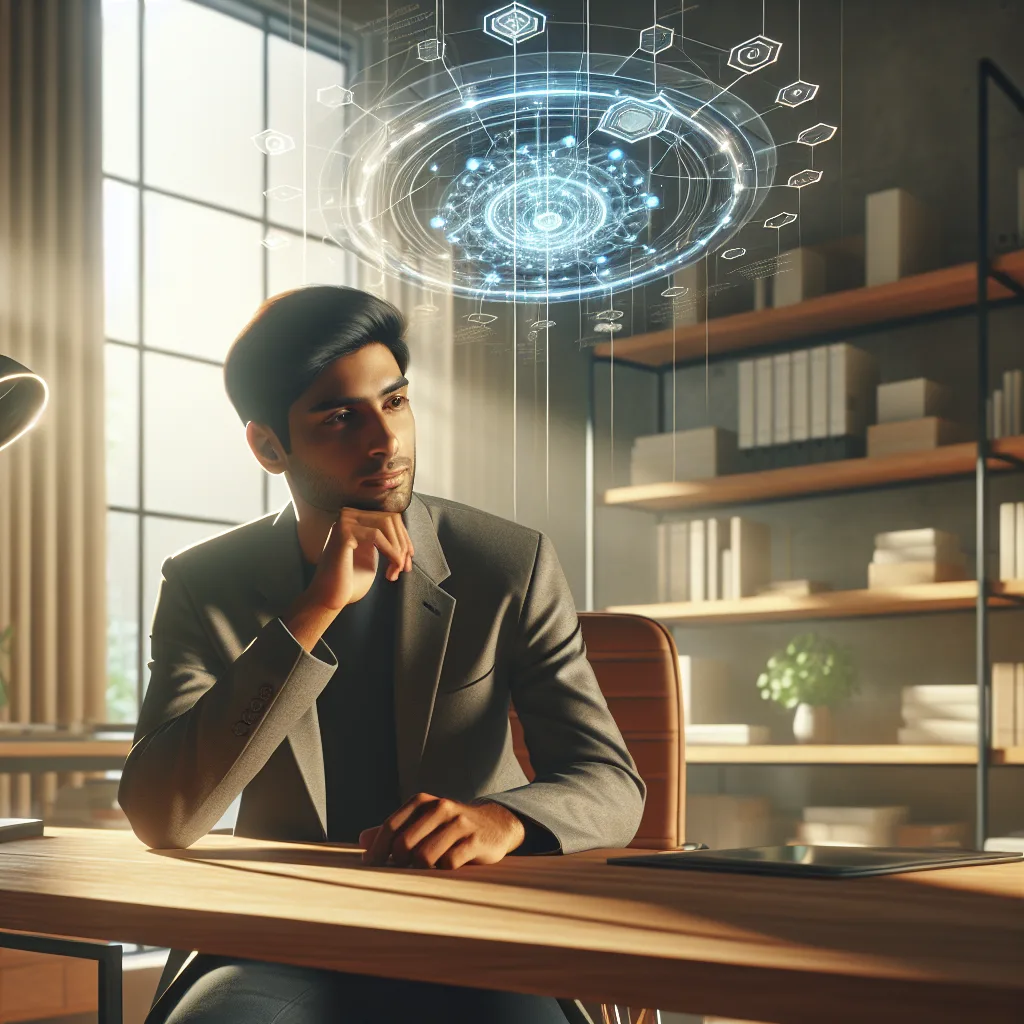From hyper-personalized assistants to creative partners, we’re exploring the wild, weird, and wonderful future of AI that might be closer than you think.
It’s {{ $today }}. I’m sitting here with my morning coffee, and I can’t stop thinking about a question that feels bigger every day: What comes next? Specifically, I’m thinking about the future of AI. It wasn’t that long ago that artificial intelligence was purely the stuff of movies—sentient robots and talking spaceships. But now, it’s woven into our lives in ways we barely notice. It recommends our next binge-watch, navigates our commutes, and even filters our emails. That’s cool, but it’s just the beginning. Let’s get a little weird and dream up what the real future of AI could look like.
Beyond Siri: A Glimpse into the Near Future of AI
Before we jump straight to sci-fi, let’s talk about the next logical steps. The AI in our near future will likely become a true life-management partner. Forget just setting reminders; imagine an assistant that truly understands you.
It could look something like this:
- Proactive Health Monitoring: Your AI, connected to your health tracker, might notice subtle changes in your vitals. It could cross-reference this with public health data and suggest, “Hey, your sleep has been off and there’s a bug going around. Maybe take it easy today and focus on hydration.” This isn’t just about data; it’s about context. Organizations like the World Health Organization (WHO) are already exploring how AI can transform health on a global scale.
- Hyper-Personalized Learning: Instead of one-size-fits-all courses, your AI could create a custom learning path for you, whether you want to learn coding or finally master sourdough. It would know how you learn best—visuals, text, hands-on projects—and adapt in real-time.
This evolution is less about a single “killer app” and more about a seamless, background intelligence that makes daily life smoother and more informed. It’s the future of AI as a practical, personalized utility.
The Sci-Fi Stuff: Creative Partners and Digital Architects
Okay, now for the fun part. What happens when AI stops being just an assistant and becomes a collaborator? This is where the lines get blurry in the most exciting way. We’re already seeing glimpses of this with AI art and music generators, but let’s push it further.
Imagine an architect working with an AI partner. The architect describes a feeling—”I want a space that feels like a calm forest morning”—and the AI generates dozens of viable, beautiful, and structurally sound blueprints in seconds. They could then “walk through” these designs together in a virtual space, making changes on the fly.
Or think about scientific research. A scientist could feed an AI a problem and all the existing research, and the AI could identify unseen patterns and propose novel hypotheses to test. It wouldn’t replace the scientist; it would amplify their intuition and creativity. It’s a partnership. Companies like OpenAI are already building models designed for this kind of complex reasoning and collaboration.
So, What’s Our Role in the Future of AI?
This is the big, important question. A future this integrated with AI brings up valid concerns about jobs, privacy, and ethics. It’s easy to feel a little anxious about it all. But I don’t see a future where humans are obsolete. I see a future where our skills shift.
As AI handles more of the analytical, data-heavy lifting, uniquely human skills become even more valuable: empathy, critical thinking, creativity, and ethical judgment. We become the conductors of the orchestra, the strategists, the ones who ask “why?”
Ensuring this future is a positive one requires careful thought and proactive design. We need to build these systems with human values at their core. Institutions like the Stanford Institute for Human-Centered Artificial Intelligence (HAI) are dedicated to this very idea—guiding and building the future of AI responsibly. It’s not just about what we can build, but what we should build.
So, while some of these ideas feel like they’re pulled from a sci-fi novel, they’re rooted in technology that’s developing right now. The future isn’t a passive event that happens to us; it’s something we’re all helping to shape with our choices, conversations, and curiosity.
What’s your wildest (or most hoped-for) prediction for the future of AI? Let me know in the comments below!
